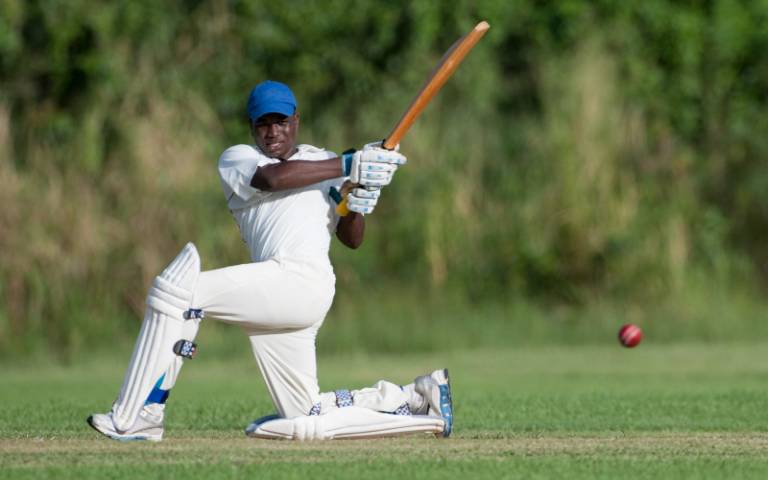New archive to explore the legacy of ‘Windrush Cricket’
30 January 2024
A new digital archive compiling the oral histories of Windrush Generation cricket players from the Caribbean is being developed by UCL researchers, who are planning workshops across the country to collect stories and shape the website to meet the community’s needs.

Dr Michael Collins (UCL History) has been gathering numerous oral histories as part of his Windrush Cricket Project at UCL since 2020. He plans to publish some of these within his forthcoming book, Windrush Cricket: Caribbean migration and the remaking of post-war England.
Dr Collins said: “A single book can only incorporate a fraction of the histories of migration and settlement in which cricket and cricket clubs were a very significant and arguably under-recognised element of postwar black British history. There are so many more stories out there.”
The Caribbean Cricket Archive will be a free-to-use, interactive online collection of oral histories, known as a “memory map.” The online archive will be built by UCL experts in the Centre for Advanced Spatial Analysis (CASA) within the Bartlett Faculty of the Built Environment.
The website will provide a space for communities, clubs and individuals to share their stories in their own words. The aim is to widen public understanding and awareness of the history of Caribbean history in the UK, to make the legacy of Caribbean cricket more meaningful and accessible to today’s generation and inspire greater participation in cricket among young people.
Dr Collins said: “It's important that this initiative is embedded in the grassroots, and is owned by the people who will ultimately be featured in the webspace. We’re doing these workshops first in order to listen and learn about what people want, and then build the webspace in that image.”
The project’s lead researcher and UCL alumna Montaz Marché will run oral history workshops at Caribbean cricket clubs across the UK including in Preston, Sheffield, Leicester, Bristol, and London starting in April. Following that, people will be able to contact the archive directly to contribute their own histories using image, text or sound.
The game of cricket was brought to the colonial Caribbean in the eighteenth century during the period of British slavery. Over the years, the game became appropriated by the black, and later Indian populations, and would eventually become the foremost sport in the Anglophone Caribbean and a symbol of national resistance to imperialism.
After the second world war, many arrivals who were part of the Windrush generation settled throughout England and brought their cricketing cultures and social networks with them. However, because of racism and classism, black Caribbeans were often denied access to established cricket clubs so new arrivals had to form their own clubs with their own leagues and competitions. Throughout the 1960s and 1970s, these self-organised clubs became important social and cultural centres for those in the community.
Dr Collins said: “The history of cricket amongst the Windrush Generation is an important and often overlooked piece of history that needs to be shared. This new archive will allow those who participated to tell their own stories in their own words. We hope that it will help the younger generation better understand the importance of these clubs and leagues and inspire more people to get involved with their own local clubs.”
In addition, the project also builds on work by Dr Collins for the Independent Commission for Equity in Cricket (ICEC), a committee established by the England and Wales Cricket Board which examined persistent racism, classism, and sexism in the sport.
The listening workshops are set to launch in April with the archive itself launching in the following months. The effort is part of the This Is Black Britain Project at UCL and is being run in partnership with the African Caribbean Engagement (ACE) Programme and the African Caribbean Cricket Association (ACCA), with funding support from the Arts and Humanities Research Council (AHRC) managed by UCL Innovation & Enterprise.
Anyone wishing to express an interest in this project and participation in the forthcoming workshops should write to Montaz Marché at info@thisisblackbritain.co.uk.
Links
- Dr Michael Collins’ academic profile
- Windrush Cricket Project
- This is Black Britain
- Independent Commission for Equity in Cricket
- The Bartlett Centre for Advanced Spatial Analysis
- UCL History
- UCL Faculty of Social & Historical Sciences
- UCL Innovation & Enterprise
Image
- Credit: isitsharp via iStock Photo
Media Contact
Mike Lucibella
E: m.lucibella [at] ucl.ac.uk
 Close
Close

